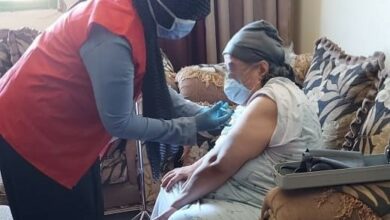
Elderly patients may be willing to let family members access their medical records and make decisions on their behalf, but they also want to retain granular control of their health information, a study suggests.
“Respecting and preserving the autonomy of the elder is critical,” said lead author Dr. Bradley Crotty. “Elders and families should have honest discussions about preferences for information sharing and decision-making, and share these conversations with healthcare providers.”
To understand how patients over 75 and the family members who care for them think about sharing medical information, Crotty and colleagues held separate focus groups in 2013 and 2014 with 30 elders and 23 caregivers.
The elderly participants came from different residential settings – including assisted living and skilled nursing facilities – run by Hebrew Senior Life, an academic health care organization affiliated with Harvard Medical School.
Caregivers were adult children, spouses, or other relatives of residents, and they didn’t have to related to the elderly subjects in the study.
The majority of study participants were white. Most residents and caregivers in the study were women and had college or graduate degrees.
Most of the elderly patients were older than 81. A third of them rarely, if ever, used the internet, while 60 percent went online daily or almost every day.
Many differences of opinion emerged as the two groups talked about sharing access to the elderly patients’ health records, the researchers reported in JAMA Internal Medicine.
Caregivers felt that having information would decrease their stress, but patients wished to maintain control of the information to avoid burdening their children or loved ones with their illnesses and problems.
Many family members also thought having access to elderly patients’ records would make it easier for them to help coordinate care, appointments and communications with the rest of the family. But patients worried that this access would cause anxiety in their children.
The more independent elderly patients didn’t like the idea of losing control of their decision-making abilities and having to rely on their children. They were willing to share information, but reluctant to cede control of the information flow or give up the ability to make their own choices about treatment.
If they did have to give up control, elderly patients wanted this to happen gradually, starting perhaps by only sharing information in an emergency rather than as a routine on a day-to-day basis.
While the study is small, it points for the need for online patient portals to be designed with the needs of both elderly patients and their family caregivers in mind, said Crotty, who is director of patient portals in the division of clinical informatics at Beth Israel Deaconess Medical Center and an instructor at Harvard Medical School.
“Hopefully what we learned will help inform future design of portals, giving seniors the ability to invite family members into their care,” Crotty said by email.
Fluidity is key in sharing elderly patients’ medical information, and it should be possible to tailor access based on shifting preferences of the individuals involved, the progression of patients’ illnesses and seniors’ level of autonomy, said Dr. Pravene Nath, author of an editorial accompanying the study.
“The bottom line is that there is no singular approach that works in a highly generalized way,” Nath, chief information officer at Stanford Health Care, said by email. “Preferences even for an individual elderly patient and associated family caregiver change over time based on numerous factors.”




